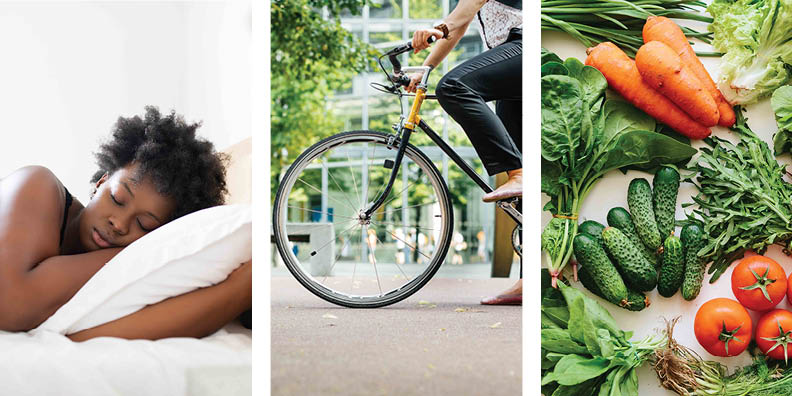In a stressful world, protecting your mental health matters more than ever before. Fortunately, researchers have found three straightforward ways to improve psychological well-being. Even better, the same strategies also boost your physical health.
The three pillars, per a study of young adults published in the journal Frontiers in Psychology:
- Sleep well
- Move more
- Eat raw fruits and veggies
Here are some ideas for making each a part of your life.
Pillar 1: Sleep Well
Slumber stood out as the single best predictor of mental health and well-being. But it wasn’t just the hours study participants logged that mattered. Even more important than quantity was their sleep quality.
If you’re tossing and turning, try a progressive relaxation exercise to help you drift off and stay there. Gradually tense, then relax, each muscle group. This exercise has improved sleep quality and reduced anxiety in several studies.
Pillar 2: Move More
In the study, physical activity played a significant role in reducing depression. To further boost your mood — and increase your chances of sticking with it — find movements you enjoy. You don’t have to run or bike if you don’t want to. Ballroom dancing with your partner, walking around your neighborhood or jumping with your kids on a trampoline all count as exercise.
Pillar 3: Eat Produce
Finally, the more raw fruits and vegetables study participants ate, the higher they scored on a scale that measured well-being. Why? All produce provides nutrients. But cooking can break down some that are more critical to mental health, including vitamins C and B.
Pump up your intake by adding fresh produce to every meal. Slice strawberries into your cereal and add cucumbers to your sandwich or wrap at lunchtime. For dinner, try a creative salad with fruits and veggies: add berries, kiwi, mandarin oranges, beets, baby spinach, and shredded cabbage.
Stay On Top of Your Overall Health with MyChart
When you use MyChart, you can keep tabs on your prescriptions, upcoming appointments and health screening schedule. Get started at crh.org/mychart.


